UFP-UV collaborates with UN
At the invitation of the International Atomic Energy Agency (IAEA ) , a UN agency based in Vienna , the Pedagogical Coordinator of the UFP- UV, Prof. Dr. Pedro Reis , recently joined a team of experts, with a view to developing a quality assurance model for training and education programs online the Agency , as well as collaborate in the creation of training resources for the web.
The Quality Assurance Model (the Educational Quality Assurance for Adult Learners (EQUAAL) Model), to be taken now in education and training programs of the Agency, are disclosed by the UN publication:
Ros, S. Herbert, C. P., & Reis, P. (2011). Nahu QA of Human Health Educational Programmes (Report to IAEA: nahu). Vienna, Austria: Division of Human Health, International Atomic Energy Agency.
Working in cooperation with an expert in Nuclear Medicine, Prof. Pedro Reis also collaborated in the design and production of a digital training module on “Solitary Pulmonary Nodule with Positron Emisson Tomography”, which was recently presented at the International Conference IPETC 2011 held in November 2011, at the IAEA headquarters in Vienna, where attended by more than 350 health professionals from 79 Member States.
Said digital module is available to the international medical community on the website Human Health Campus (http://nucleus.iaea.org/HHW/NuclearMedicine/e-LearningModule/index.html), created by the IAEA, in order to provide the experts from the Member States information to strengthen and improve their practices through training materials jointly developed by health experts and educational technologies.
- Pedro Reis (far left) with the team of the IAEA in platform launch for m-learning, the UN facilities in Vienna in November 2011
The creation of this type of multimedia and interactive training resources is presented by the Director of the IAEA, Dr. Rethy Chhem, as a strategic objective of the Agency, considering its mission to promote efficient dissemination of scientific knowledge among health professionals of the Member States:
“The establishment of these learning resources was founded on sound educational foundations focused on a student-centered mode with active learning approach, achieved through the use of lectures, interactive case studies and videos containing guide questions and answers, which are essential educational tools geared towards the self-directed lifelong learning process. ”
UFP-UV welcomes, therefore, the fact that scientific knowledge and professional skills of the unit are being required by such a prestigious institution such as the UN.
2. The home page of the Human Health Campus, the IAEA, in versions for PC and also for m-learning.
UFP-UV collaborates with “Ciberdúvidas da Língua Portuguesa” in the creation of digital educational content
The team of UFP-UV, led by Prof. Dr. Pedro Reis, collaborated with “Ciberdúvidas”, a website of the Portuguese Language (www.ciberduvidas.com ) on the creation and development of digital educational content in Portuguese.
“Ciberdúvidas” have been stated in the Portuguese-speaking world as a recognized space of information, discussion and promotion of the Portuguese language, in a perspective of affirmation of cultural values in the eight countries of official portuguese language. UFP- UV, through its pedagogical coordinator, Prof. Dr. Pedro Reis, was invited to participate in an integrated project in “Ciberdúvidas” designated Ciberescola da Língua Portuguesa (www.ciberescola.com), sponsored by the Ministry of Education and Science and the Centre of the Portuguese language .
The “CiberEscola” is an interactive platform of resources and online courses for the Portuguese education and is a unique project in the editorial and institutional offer in the web universe. Users (students and teachers) can access the platform free of charge through a simple registration. You only need an Internet connection. The platform works on any browser, additional software download to not being necessary.
In “Português Língua Materna” are seven levels of education, from 5 to 12 years. In “Português Língua Não Materna” are included all A1 to C2 levels. In both, the treated areas are reading, oral comprehension, grammar, writing and vocabulary. All exercises are original, produced specifically for post-graduate teachers and researchers in linguistics.
The contribution of UFP-UV team consisted of developing Portuguese exercises advanced level (C1 and C2) for foreign students.
The materials provided are intended to be implemented independently by the student, as a supplementary study, and / or used in the classroom, in collaborative working arrangements, with the support the use of interactive whiteboards or computer with projector, or in rooms computers.
UFP-UV wins FCCN contest for Educ@st platform
The application of UFP-UV (Virtual University) was one of the 8 selected from the 18 applications submitted to the contest of the Foundation for National Scientific Computing (FCCN) for adoption of Educ@st and was assigned an audiovisual kit service. Among the selection criteria, FCCN stated value “the most consistent and promising projects.”
The Educ @ st service is intended for the production, distribution and hosting of video content, enabling higher education institutions to do autonomous and independently, recording classes, workshops, seminars and other academic and cultural nature of events. The specificity of this new service is that the recording of classes and seminars, for example, can be made simply and autonomously, in the classroom, the teacher, with its own audiovisual kit, and the resulting video can be edited also independently by the teacher and later disseminated to students through e-learning.
A video production platform with the Educ@st service will enhance the creation, development and distribution of educational resources through the platform adopted at the University, especially for courses operating in b-learning methods and e-learning.
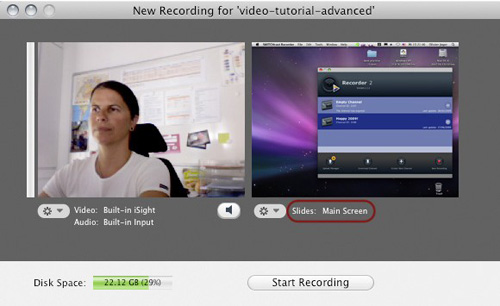
- Video files resulting from the Educ@st service (automatically generated in 3 formats – Quicktime , Flash and iPod) combine audio and video capture ( the teacher, for example) with a file from an application presentation (Powerpoint , for example ) .
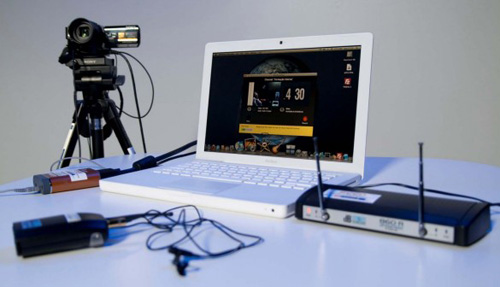
- audiovisual kit Educ @ st won by UFP- UV (Virtual University) :
1 Computer Apple MacBook
1 Camcorder
1 Tripod for camcorder
1 Receiver and microphone s / Lapel wires
1 VGA Grabber ( Epiphan VGA2USB LR )
Accessories (cables, adapters, etc. )
1 Pen 1Gb with software and manuals
1 Headphones
1 transport case with wheels
UFP-UV has welcomed, in the past few years, visiting professors from various international universities interested in training in e-learning.
These visits have been guided by stimulating exchanges of experiences and discussions on modernization of education and methodologies of distance learning:
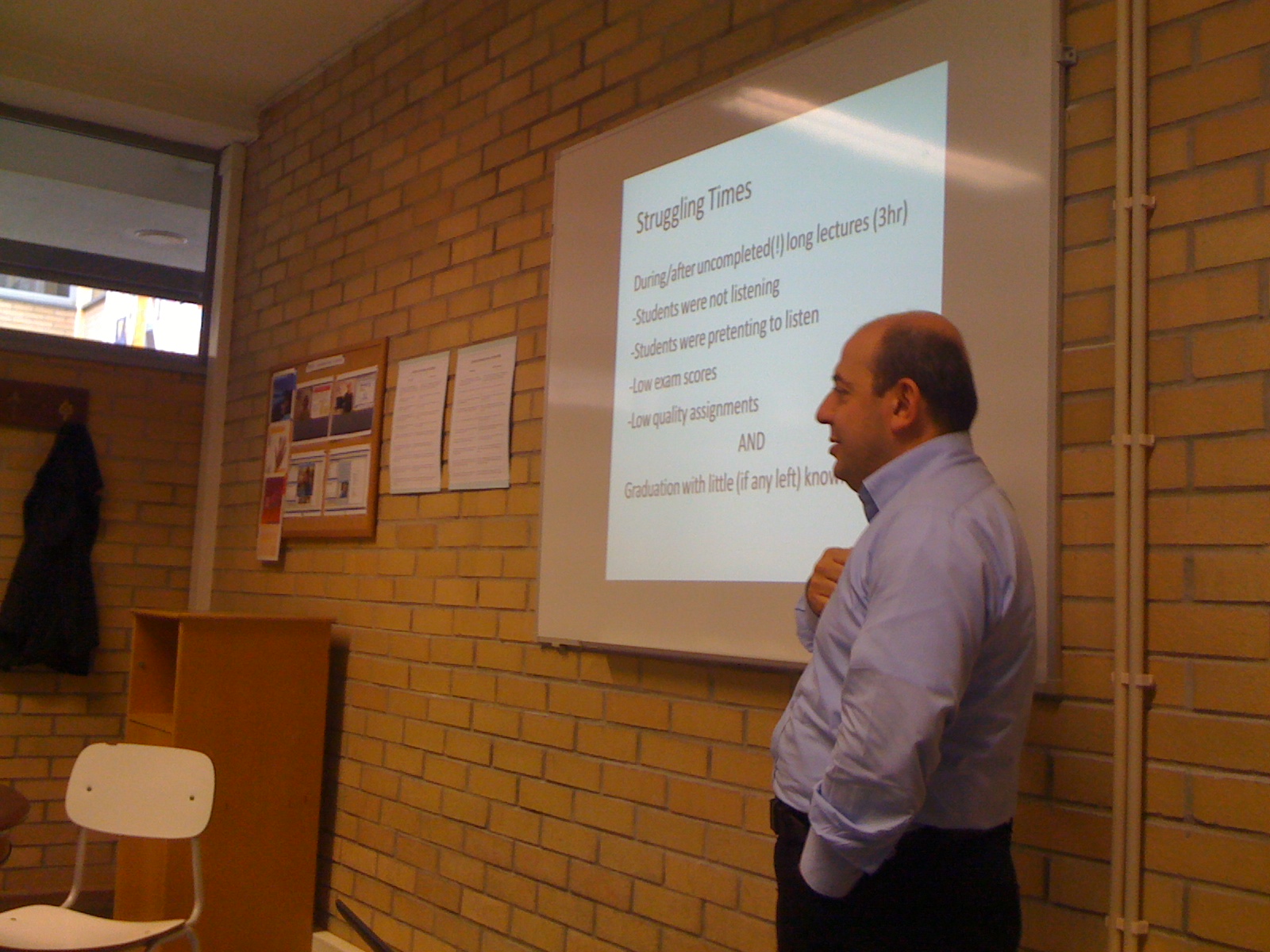
İlhan Varank (Associate Professor of educational technology, Yildiz Technical University, Turkey) (2012)
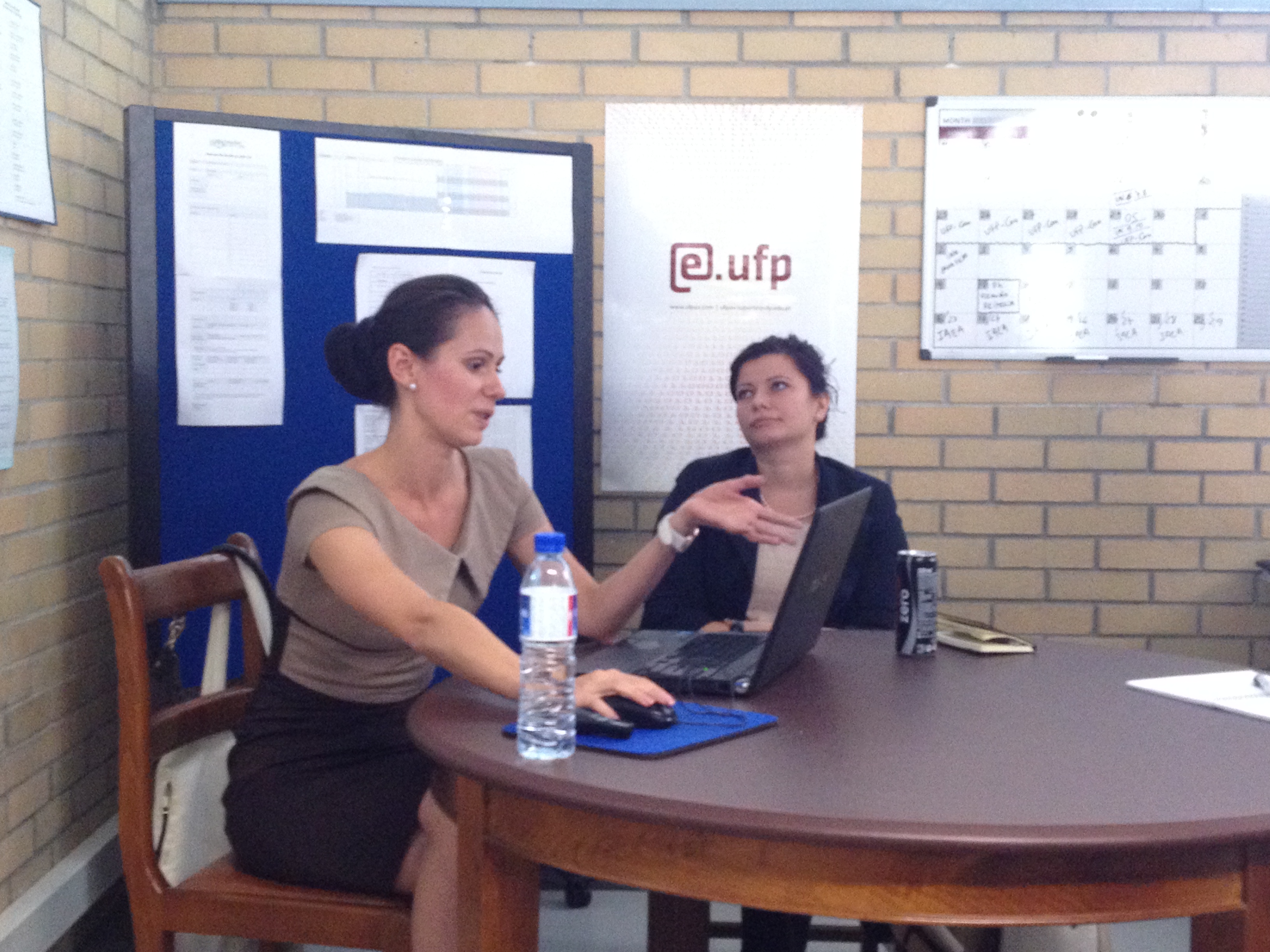
Lilla Mária JUHÁSZ (vice-director for project development at the National University of Public Service, Institute of Executive Training and Continuing Education, Budapest, Hungary) and Csilla PAKSI-PETRÓ (Assistant Professor at National University of Public Service, Faculty of Public Administration, Institute of Career and Human Resources) (2015)
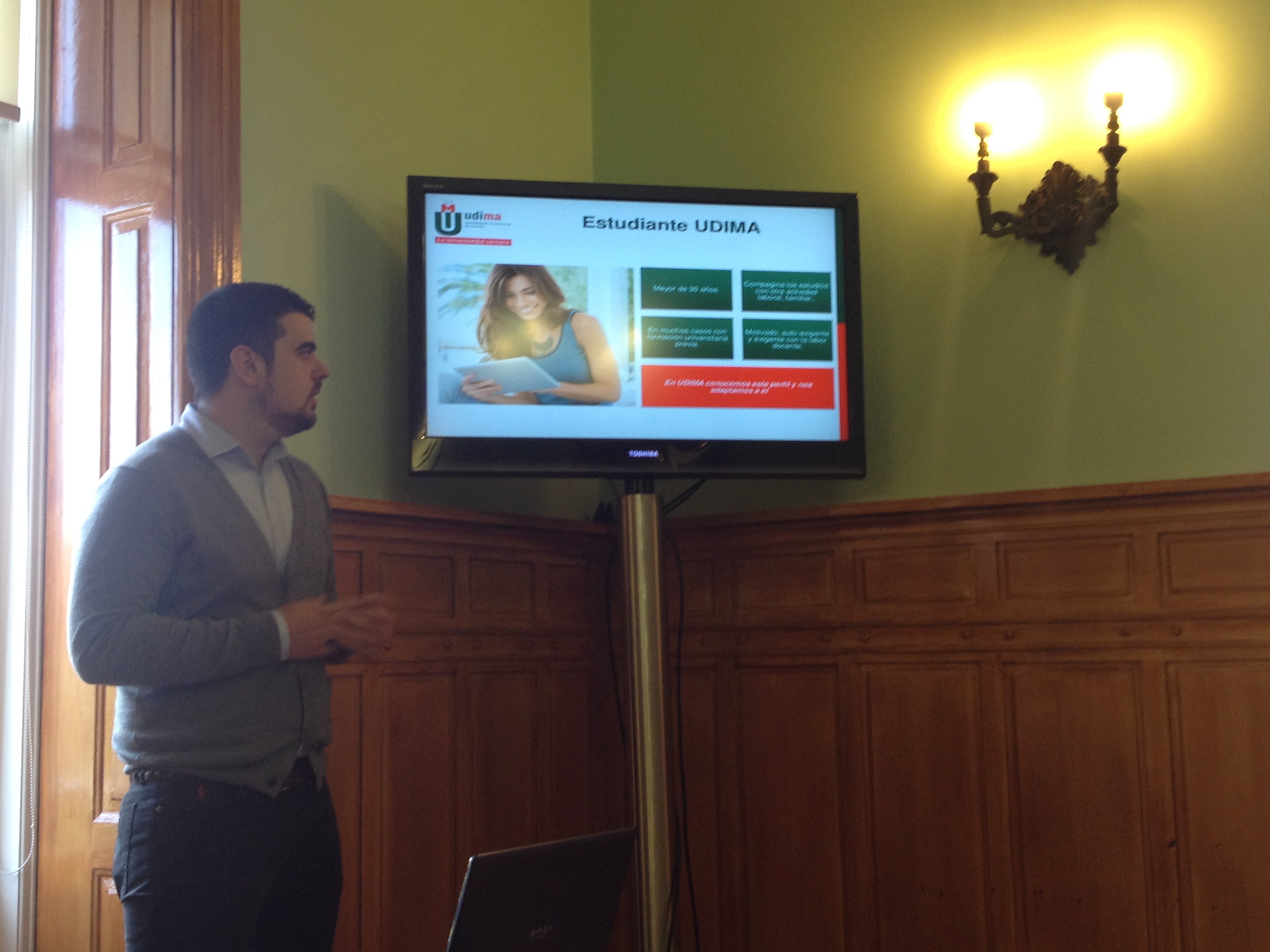
Andrés Sancho (Arquitecto Técnico e Ingeniero de Organización Industrial, Asesor de Formación en UDIMA) – http://www.udima.es) (2016)






